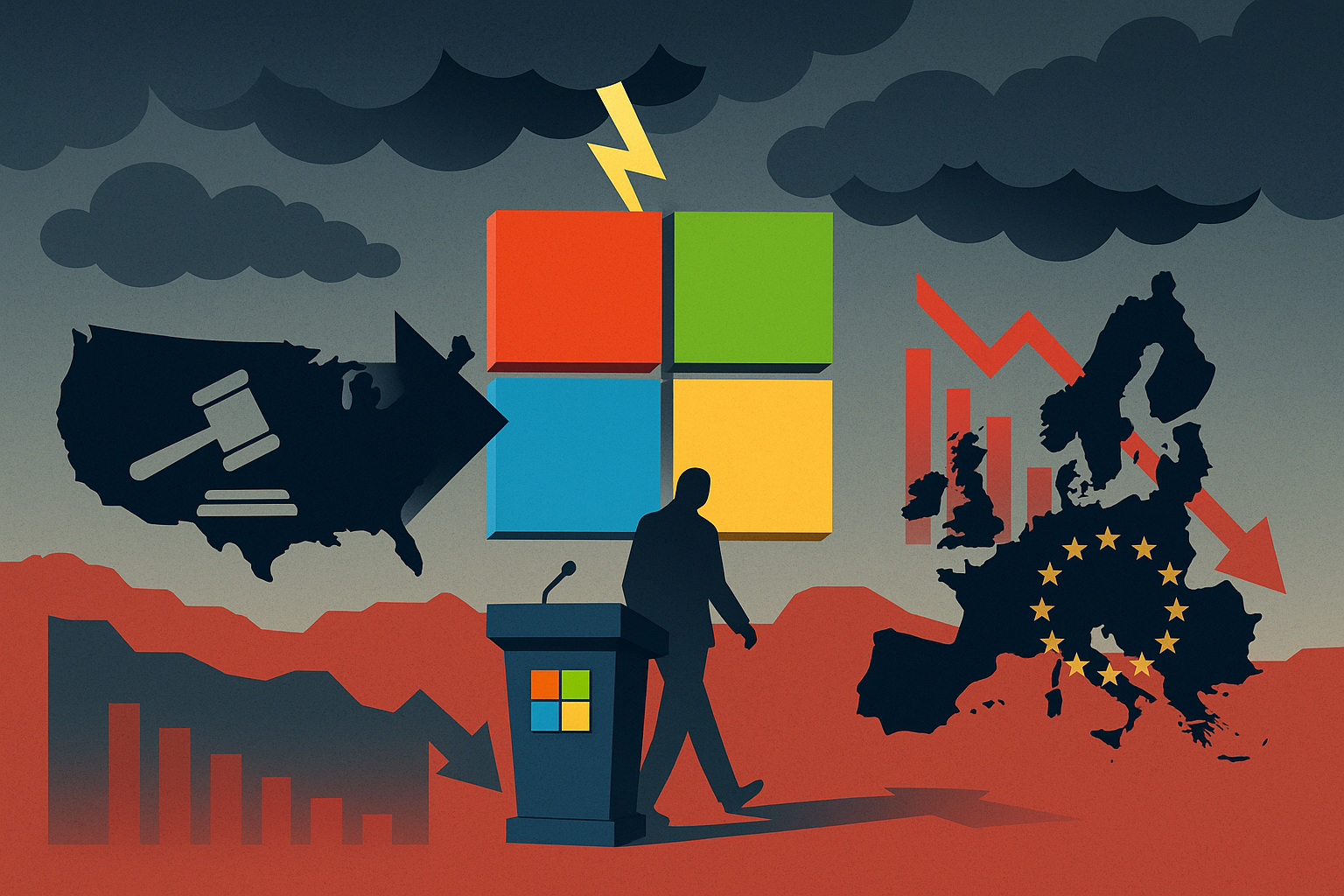Microsoft’s EU Expansion Plans Hit Turbulence Amid Transatlantic Trade Friction
As global markets increasingly hinge on political developments, Microsoft—one of the world’s most influential tech giants—finds itself in the crosshairs of escalating U.S.-EU trade tensions. According to The Wall Street Journal, Microsoft’s strategic efforts to expand operations across the European Union are being slowed by mounting regulatory scrutiny and rising geopolitical frictions between Washington and Brussels.
The standoff comes at a time when the tech sector is under intense pressure from global regulators, and it raises fresh concerns for investors betting on Microsoft’s international growth. As the world’s second-most valuable publicly traded company, any disruption to Microsoft’s expansion strategy can have far-reaching implications for the broader tech sector.
Why This Matters for Investors
1. Regulatory Headwinds in a Critical Market
The European Union has been tightening its grip on Big Tech for years through sweeping digital regulations, including the Digital Markets Act (DMA) and Digital Services Act (DSA). Now, trade tensions are adding fuel to an already heated regulatory climate.
Microsoft, which has been expanding its cloud infrastructure, AI capabilities, and cybersecurity footprint in Europe, faces increased scrutiny over data sovereignty, market dominance, and interoperability mandates. This could delay product rollouts, limit M&A activity, and increase compliance costs.
“We are deeply committed to Europe, but consistent and fair regulatory treatment is essential for innovation and investment,” a Microsoft spokesperson told WSJ.
2. Geopolitical Tensions Influence Market Sentiment
The latest friction stems from broader U.S.-EU disagreements on data privacy, digital taxation, and industrial policy alignment. These disagreements are complicating U.S. companies’ access to European markets, with Microsoft, Amazon, Apple, and Google all under varying degrees of scrutiny.
Market watchers say that while this may not drastically impact Microsoft’s bottom line in the short term, prolonged diplomatic deadlock could erode investor confidence in U.S.-based multinational tech firms’ ability to navigate foreign regulatory environments.
3. Europe as a Strategic Growth Frontier
Europe represents a significant growth opportunity for Microsoft—particularly in cloud computing and enterprise software. Its Azure data centers across Germany, France, and the Netherlands are central to its European strategy.
However, if Microsoft is forced to localize operations further or restructure product offerings to meet EU-specific standards, profit margins may be compressed, and scalability could be affected.
Future Trends to Watch
- Digital Trade Frameworks: Investors should monitor negotiations for new transatlantic trade frameworks, which could either ease or escalate tensions.
- AI Regulation in the EU: Microsoft’s heavy AI investments could face headwinds under proposed EU AI Act rules targeting high-risk systems.
- Shifting M&A Landscape: Regulatory restrictions may cool Microsoft’s appetite for European acquisitions, such as the recent pushback on its takeover of gaming and cybersecurity firms.
Key Investment Insight
While Microsoft remains a strong long-term hold due to its diversified revenue streams and innovation in AI and cloud, investors should prepare for increased geopolitical and regulatory volatility. Exposure to regions with complex trade relations may require closer risk assessment.
Consider the following:
- Keep an eye on regulatory developments within the EU and OECD nations.
- Evaluate companies with strong local compliance strategies and diversified global operations.
- Watch the tech sector for possible valuation adjustments tied to policy disruptions.
Stay Ahead with MoneyNews.Today
Geopolitics is no longer a backdrop to technology—it’s a defining force. For investors seeking to navigate this intersection with clarity and confidence, MoneyNews.Today delivers the daily insights you need to stay informed and ahead of the curve.





